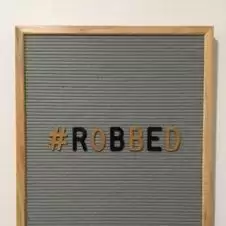-
Welcome to Celiac.com!
You have found your celiac tribe! Join us and ask questions in our forum, share your story, and connect with others.
-
Celiac.com Sponsor (A1):
Celiac.com Sponsor (A1-M):
-
Get Celiac.com Updates:Support Our Content
Benedryl
-
Get Celiac.com Updates:Support Celiac.com:
-
Celiac.com Sponsor (A17):
Celiac.com Sponsor (A17):
Celiac.com Sponsors (A17-M):
-
Recent Activity
-
- JudyLou replied to JudyLou's topic in Celiac Disease Pre-Diagnosis, Testing & Symptoms11
-
- knitty kitty replied to JudyLou's topic in Celiac Disease Pre-Diagnosis, Testing & Symptoms11
Seeking advice on potential gluten challenge
I have osteopenia and have cracked three vertebrae. Niacin is connected to osteoporosis! Do talk to your nutritionist and doctor about supplementing with B vitamins. Blood tests don't reveal the amount of vitamins stored inside cells. The blood is a transportation system and can reflect vitamins absorbed from food eaten in the previous twenty-four... -
- JudyLou replied to JudyLou's topic in Celiac Disease Pre-Diagnosis, Testing & Symptoms11
Seeking advice on potential gluten challenge
Thank you so much for the clarification! Yes to these questions: Have you consulted dietician? Have you been checked for nutritional deficiencies? Osteoporosis? Thyroid? Anemia? Do you take any supplements, or vitamins? I’m within healthy range for nutritional tests, thyroid and am not anemic. I do have osteopenia. I don’t take any medications, and the... -
- knitty kitty replied to JudyLou's topic in Celiac Disease Pre-Diagnosis, Testing & Symptoms11
Seeking advice on potential gluten challenge
@JudyLou, I have dermatitis herpetiformis, too! And...big drum roll... Niacin improves dermatitis herpetiformis! Niacin is very important to skin health and intestinal health. You're correct. dermatitis herpetiformis usually occurs on extensor muscles, but dermatitis herpetiformis is also pressure sensitive, so blisters can form... -
- trents replied to Mark Conway's topic in Celiac Disease Pre-Diagnosis, Testing & Symptoms5
Have I got coeliac disease
And I agree with Wheatwacked. When a physician tells you that you can't have celiac disease because you're not losing weight, you can be certain that doctor is operating on a dated understanding of celiac disease. I assume you are in the UK by the way you spelled "coeliac". So, I'm not sure what your options are when it comes to healthcare, but I might suggest...
-





Recommended Posts
Archived
This topic is now archived and is closed to further replies.